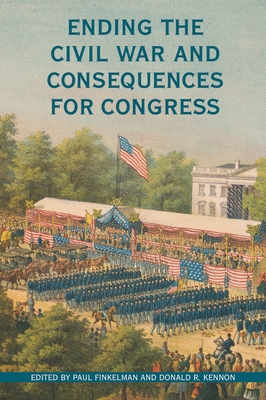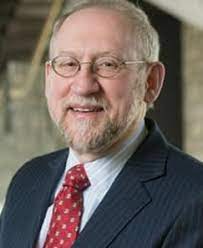

 Ohio University Press
Ohio University Press
Ending the Civil War and Consequences for Congress


Key Metrics
- Paul Finkelman
- Ohio University Press
- Hardcover
- 9780821423370
- 9.3 X 6.3 X 0.6 inches
- 0.8 pounds
- History > United States - Civil War Period (1850-1877)
- English
 Secure Transaction
Secure TransactionBook Description
The social changes and human and economic costs of the Civil War led to profound legal and constitutional developments after it ended, not least of which were the Fourteenth and Fifteenth Amendments and the many laws devised to protect the civil rights of newly freed African Americans. These amendments and laws worked for a while, but they were ineffective or ineffectively enforced for more than a century.
In Ending the Civil War and the Consequences for Congress, contributors explore how the end of the war both continued the trauma of the conflict and enhanced the potential for the new birth of freedom that Lincoln promised in the Gettysburg Address. Collectively, they bring their multidisciplinary expertise to bear on the legal, economic, social, and political aspects of the aftermath of the war and Reconstruction era. The book concludes with the reminder of how the meaning of the war has changed over time. The Civil War is no longer the felt history it once was, Clay Risen reminds us, and despite the work of many fine scholars it remains contested.
Contributors: Jenny Bourne, Carole Emberton, Paul Finkelman, Lorien Foote, William E. Nelson, Clay Risen, Anne Sarah Rubin, and Peter Wallenstein
Author Bio
A specialist in American legal history, constitutional law, and race and the law, Professor Paul Finkelman is the author of more than 150 scholarly articles and more than 30 books. His op-eds and shorter pieces have appeared in the New York Times, the Washington Post, USA Today, and on the Huffington Post. He was recently named the ninth most cited legal historian according to "Brian Leieter's Law School Rankings."
He is an expert in constitutional history and constitutional law, freedom of religion, the law of slavery, civil liberties and the American Civil War, and legal issues surrounding baseball. He has written extensively on Thomas Jefferson and on Abraham Lincoln. Professor Finkelman was the chief expert witness in the Alabama Ten Commandments monument case and his scholarship on religious monuments in public spaces was cited by the U.S. Supreme Court in Van Orden v. Perry (2005). His scholarship on the Second Amendment has also been cited by the Supreme Court. In 2002 he was a key expert witness in the suit over who owned Barry Bonds' 73rd home run ball.
C-SPAN was on the Albany Law School campus in fall 2010 to tape Professor Paul Finkelman's two-hour class on the Dred Scott case. The program aired nationally and is now part of C-Span’s series on American History. He has also appeared on other C-Span programs, on PBS, and the History Channel.
Education
- B.A., Syracuse University
M.A., Ph.D., University of Chicago
Fellow in Law and Humanities, Harvard Law School
Source: Albany Law School
Community reviews
Write a ReviewNo Community reviews



